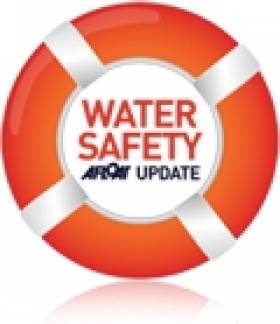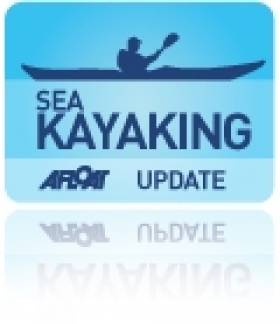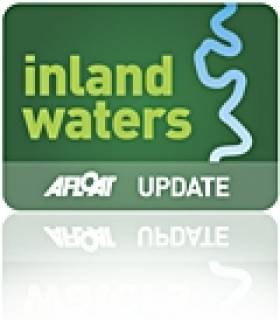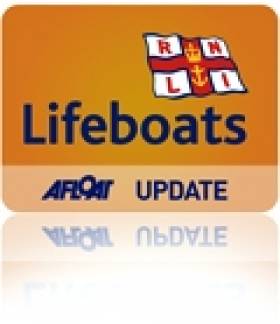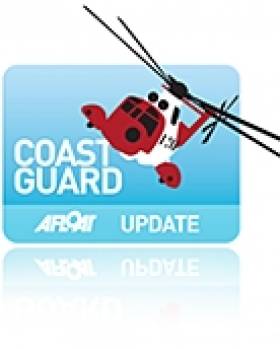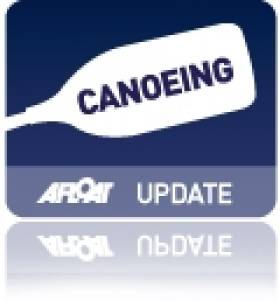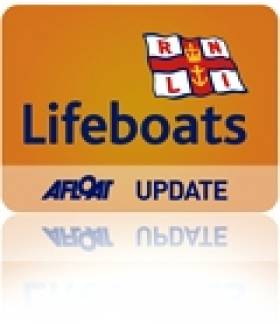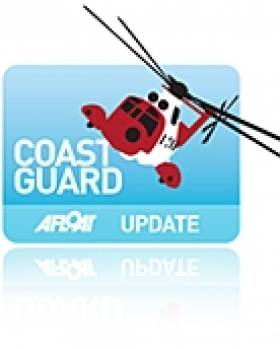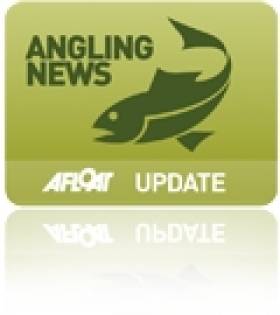Displaying items by tag: Northern Ireland
RNLI Lifeguards Providing Easter Beach Cover In Northern Ireland
#WaterSafety - RNLI lifeguards will provide Easter cover for the first time on three of the most popular family beaches in Northern Ireland.
For the second year running, lifeguards will be patrolling Tyrella Beach in Co Down, and for the third year will be ready to offer safety advice and assistance on Benone Strand on the north coast.
In addition this Easter, lifeguards will also be patrolling Portstewart Strand, Portrush East Strand and Whiterocks beach, all of which are located along the Causeway Coast.
The cover commences on Good Friday 29 March and will run throughout Easter week until Sunday 7 April.
Despite the unseasonal weather, the charity’s highly trained lifeguards will be ready to assist visitors who brave the elements and take a trip to the seaside over the Easter break.
The lifeguards will operate on Benone, Portstewart, East Strand and Whiterocks from 11am to 7pm, and from 10am to 6pm on Tyrella Beach.
RNLI regional lifeguard manager Mike Grocott said: "Our highly trained lifeguards spot potential dangers before they develop, and are on hand to give appropriate safety advice and respond immediately if anyone gets into difficulty.
"Because our lifeguards work closely alongside our volunteer lifeboat crews, it means the RNLI offers beachgoers and water-users a seamless rescue service from beach to open sea."
The RNLI started providing lifeguard cover on Northern Ireland beaches in 2011, working with Coleraine Borough Council, Limavady Borough Council and the National Trust - and going into its third season now has lifeguards on 10 beaches.
Last year, lifeguards in the areas of Newry and Mourne District Council, Down District Council and the Causeway Coast together responded to 158 incidents and assisted 176 people.
Speaking ahead of the Easter holidays, RNLI lifeguard supervisor Tim Doran encouraged anyone planning a trip to the beach to keep safe.
"Always swim at a lifeguarded beach. Never use inflatables in strong winds or rough seas and check tide times before you go," he said. "If you get into trouble, stick your hand in the air and shout for help and if you see someone else in trouble, tell a lifeguard. If you can’t see a lifeguard, call 999 or 112 and ask for the coastguard."
The RNLI is also encouraging anyone planning a trip to the seaside this year to download its ‘Beach Finder’ mobile app.
The handy app makes it easy to find the nearest lifeguarded beach, and gives users a wealth of beach safety information at their fingertips.
Real-time weather information and a five-day forecast for each location is also included with the app – ideal for anyone wondering whether they’ll need to pack their suncream or waterproofs!
The app is available to download free of charge on both Android and iOS devices from www.rnli.org/beach.
Top NI Surf Kayaker Set To Cross Irish Sea
#SeaKayaking - A Portrush teen is preparing to cross the Irish Sea by kayak for charity this summer.
Top surf kayaker Andy McClelland aims to raise funds for the Alzheimer's Society, Kidney Research and the Regional Respiratory Centre with his One Man One Boat campaign, which will see him kayak 22 miles across the open water from Donaghadee in Co Down to Portpatrick in Scotland.
The current Surf Kayak Junior World Champion will embark on his challenge in a high-performance sea kayak on loan from Rockpool Sea Kayaks and is presently planning his trip with fellow physiotherapy students at Ulster University Jordanstown as well as the Causeway Coast Kayaking Club.
McClelland has yet to set a date for the solo crossing, awaiting word on the best possible weather and sea conditions in May.
The Alzheimer's Society has more on the story HERE.
Erne Pike Anglers' Misguided Fury Over Commercial Pike Netting
#Angling - Pike anglers in Fermanagh have taken to social media to campaign against what they call the 'illegal' commercial netting of pike in Lough Erne - but the story isn't all what it seems.
According to The Impartial Reporter, the pike nets men are licensed by Northern Ireland's Department of Culture, Arts and Leisure (DCAL) to catch pike during the open season from 1 December to 28 February annually.
A DCAL spokesperson said the commercial fishery is in place "to manage pike stocks and reduce their impact on trout stocks", a practice that is "in keeping with management practices elsewhere, including in high value large trout lakes in the West of Ireland".
It's reported that only five of seven licensed pike nets men took out the necessary permits to net pike on the Erne system in the most recent season.
But this hasn't stopped some anglers from threatening to break the law and tamper with pike nets in what appears to be misguided anger fuelled by online allegations.
The Impartial Reporter has more on the story HERE.
NI Road Plans In Balance Over Salmon River Concerns
#InlandWaterways - Plans for one of Northern Ireland's biggest road schemes are in jeopardy after it emerged that construction could interfere with important salmon rivers.
As the Belfast Telegraph reports, High Court Justice Stephens said he was "minded" to put a stop to the A5 road project between Derry and South Tyrone as he found there had been a failure to carry out an impact assessment on the Special Areas of Conservation designated on the Rivers Foyle and Finn.
Both rivers are important for migrating salmon whose numbers are dwindling in Northern Ireland's waterways, despite reports of isolated surplus counts in areas like Lough Melvin.
The Department for Regional Development now has till next Friday to argue that the omission in their preparations should not prompt the quashing of plans for the new cross-border route.
The Belfast Telegraph has more on the story HERE.
Lifeboats Chief Visits Donaghadee, New Lifeboat for Arklow
#RNLI - Donaghadee lifeboat station was delighted yesterday (7 March) to welcome RNLI chief executive Paul Boissier, who was on a two-day visit to the Northern Ireland division.
Operational and fund raising volunteers crowded into the station to meet Boissier, who thanked them for coming out so early on a cold and wet morning.
While sitting enjoying the hospitality of the station, Boissier listened to the views of both crew and fundraisers on a wide range of topics. He said he was delighted to be in such a beautiful part of Northern Ireland and could not help but be impressed with the enthusiasm of all the volunteers.
He praised and thanked them for their commitment to the RNLI while remembering the support from the local community, and went on to say that the commitment of the operational volunteers supported by all at the station made the sea around the local coastline that much safer for everyone.
Meanwhile, Arklow RNLI was delighted to welcome the charity's newest lifeboat Kiwi and her volunteer crew to Arklow Harbour on Monday evening.
Prior to arriving in Arklow, the Tamar class lifeboat – which features the latest in search and rescue technology – had visited Torbay, St Mary’s on the Scilly Isles, Falmouth and Rosslare on her passage home to Wales. The weary crew arrived in Arklow after more than eight hours at sea.
The new vessel is a replacement station boat for Moelfre and replaces a Tyne class lifeboat similar to the one stationed at Arklow's flank RNLI station in Wicklow.
Kiwi was funded from a bequest by Reginald James Clark, a New Zealander who had been rescued by an RNLI lifeboat during World War II.
The crew from Moelfre was welcomed by Arklow RNLI's crew, fundraisers and station management along with members of the public.
Following her overnight stay in Arklow, she departed at 8.30am on Tuesday morning for her new home at Moelfre.
UK Coastguard Agency Head Meets Fishermen's Mission in NI
#Coastguard - The chief executive of the UK's Maritime and Coastguard Agency (MCA) was in Northern Ireland yesterday (4 March) to discuss future collaboration with the Royal National Mission to Deep Sea Fishermen.
As Fishupdate.com reports, the charity - also known as the Fishermen's Mission - provides emergency support to fishermen and their families in times of need.
Sir Alan Massey of the MCA was in Kilkeel, Co Down to meet with the charity's CEO David Dickens to find out how best to work together on their common ground of safety at sea.
"We want to encourage a culture where it becomes normal practice for all fishermen to wear a lifejacket or personal flotation device (PFD) when out at sea," said Massey.
Dickens added that the Fishermen's Mission is "keen to engage with all agencies and organisations that seek to reduce the number and severity of incidents in fishing".
Larne Women To Paddle The Ban for Cancer Charity
#Canoeing - Larne women will be paddling the Bann this April all in the aid of a very good cause.
The 24-strong group from local fitness club BeFit, going by the title of the BeFit Challengers, will take to the water on 20 April for the start of a two-day canoeing expedition, along the River Bann and out to the Atlantic.
As the Larne Times reports, these ladies hope the challenge - and an epic mountain cycling event later in the year - will raise funds for Cancer Focus Northern Ireland.
BeFit owner Andrea Kernohan said: “I like to set the BeFit girls a challenge every so often, so that they have a fitness gold to work towards. I thought these Cancer Focus challenge events were perfect.
"Sadly this cause is close to mine and the girls’ hearts as so many people have been affected by cancer in one way or another.”
The Larne Times has more on the story HERE.
RNLI Calls For Causeway Coast Lifeguards
#RNLI - The RNLI is currently recruiting lifeguards to work on 10 Northern Ireland beaches for the forthcoming season including seven beaches along the Causeway Coast.
The successful candidates will become part of the RNLI’s beach lifeguard team who will monitor and advise the public of any dangers or hazards and carry out rescues.
The charity provides a seasonal service on seven beaches along the Causeway Coast including Benone, Downhill, Castlerock, Portstewart Strand, Portrush West Bay & East Strand and Whiterocks.
This is the third year the lifeboat charity’s lifeguards have provided a lifeguard service in Northern Ireland, offering beach-goers and water users a seamless rescue service from the beach to open sea working alongside RNLI lifeboats.
The closing date for applicants is Sunday 17 February 2013. A detailed description of the RNLI lifeguard role is available at www.rnli.org/lifeguards.
A key part of an RNLI lifeguard's job is to spot dangers before they develop, and 95% of their role is preventative. Their presence on the beach provides reassurance to the public while also offering any help or advice to help people enjoy their beach experience in a safe environment.
To many beach users they are a reassuring presence but they also carry out many other important functions. They assess the conditions on the beach and place zone flags and warning signs to advise the public. They carry out rescues to help people who have got into difficulty in the water or who need assistance. They also provide first aid, help with lost children, give advice, report hazards, and assist with beach safety and education programmes. They train and preform to their duties to the highest RNLI standards.
The RNLI has about 50 positions available and many former lifeguards are expected to return for the new season. However, there are a number of positions vacant and the charity would like to hear from interested people. The minimum age for applicants is 16 years and candidates must have a high level of fitness.
Mike Grocott, RNLI lifeguard manager for Northern Ireland, said: “RNLI lifeguards are a vital part of the charity’s lifesaving service. Last year they dealt with 126 incidents and assisted 142 people on the Causeway Coast.
"It is a fantastic opportunity for people to do a job that is both fulfilling and enjoyable. Our lifeguards speak to hundreds of people over the course of the season and get the opportunity to do something important and rewarding in the community.
"The ideal applicant will already hold an International Lifesaving Approved Beach Lifeguard Award but if candidates need to get qualified we can put them in touch with local providers of courses.”
Limavady and Coleraine Councils along with the National Trust provide funding towards the lifeguards’ wages while the RNLI funds the training and equipment.
Belfast Coastguard Manager Resigns As Station Takes On Extra Load
#Coastguard - For Argyll in Scotland reports that Richard Newell has resigned from his post as rescue co-ordination centre manager at Belfast Coastguard.
The news comes some weeks after the command base took on extra responsibility with the permanent closure of the Clyde coastguard station last month.
Britain's Maritime and Coastguard Agency (MCA) confirmed to the website that Newell resigned from his position around two weeks ago - and that he has assured the agency that his decision has no connection with the streamlining plans being undertaken across Britain's coastguard network.
However, For Argyll alleges Newell had made it known locally that "if he considered the future [of the coastguard service] was becoming dangerous, then he would go".
As previously reported on Afloat.ie, campaigners for the Clyde coastguard station in western Scotland were taken aback by the early transfer of helicopter dispatches to Belfast and Stornoway in November, ahead of the base's permanent closure on 18 December last.
More than 30 jobs were lost with the scrapping of the Clyde control centre at Greenock, with much of its role now being taken up by the Belfast command centre at Bangor across the North Channel - a change to the original plan for Scottish stations to share the load till 2015.
Salmon Surplus Sure to Attract Anglers to Lough Melvin
#Angling - Anglers on both sides of the border will be looking forward to a salmon bonanza on Lough Melvin when it opens for fishing on Friday 1 February, according to the Impartial Reporter.
The Fermanagh lake has been bucking the trend of declining fish stocks in Northern Ireland's inland waterways, which have prompted concerns that the species has been reduced to 'dodo levels'.
Despite the news last October that just three out of every 100 wild salmon returned to Northern Ireland's rivers in 2011, fishery experts believe that Lough Melvin and the River Downes that connects it to the sea have a surplus of salmon - providing valuable sport (and dinner) for angling locals and tourists alike.
Even so, anglers in both jurisdictions of the border-straddling fishery will have to abide by their respective legislation, which provides for a strict tagging and recording system.
On the Northern Ireland side, anglers are issued one tag at a time up to a total of three for the first three months of the season, with a maximum of 10 issued for any single angler on Lough Melvin by the close of fishing on 30 September.
The Impartial Reporter has much more on the story HERE.


























